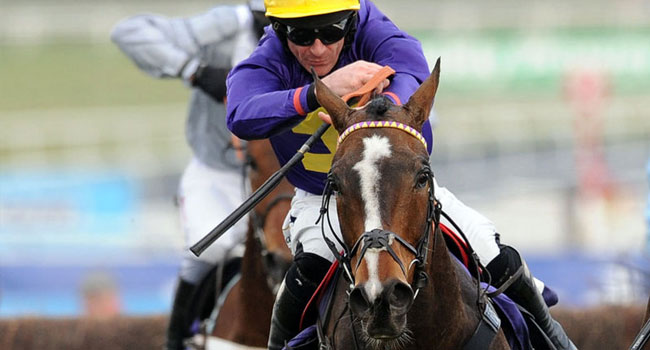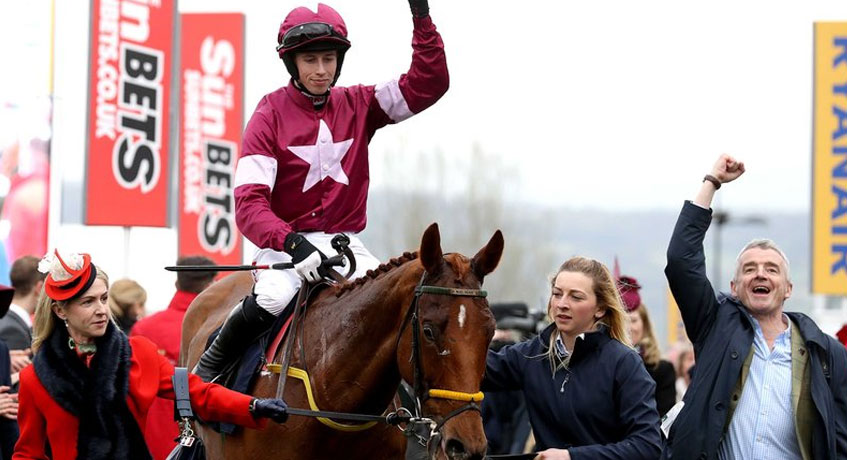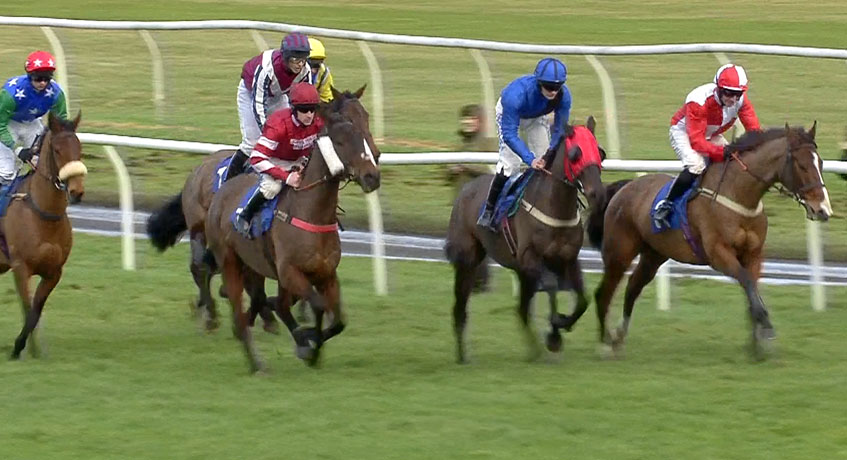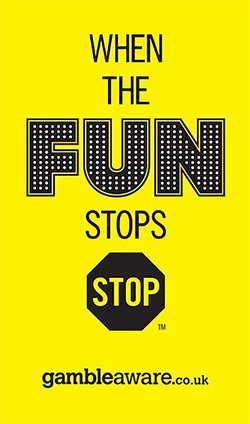In-Running Horse Racing Betting
Betting in-running on the horses can give you an edge if you do your homework. You can try putting your race reading knowledge to the test by using your own judgement to make your bets live in running but youíre almost certainly going to be eaten alive by the layers and backers with quicker live TV and by the players in their private boxes at the course insidiously laying the fallers and backing the winners in front of anyone else.
You can gain an edge by learning that certain horses have tendencies to run consistently the same way. Some horses are front-runners and some horses that travel extremely well in their races but donít always finish their races that well and can go from looking the winner to folding up at the business end of the race. These horses will trade extremely short in-running at a fraction of the odds before the race and anyone backing these likely looking winners will be losing a lot of the time. You will want to be laying these horses, but only when they are trading short in-running.
On the flip side there are horses that donít travel so well or drop right off the pace in their races; these will trade often trade at much greater odds. If you fancy one of these types of horses look to back it in-running and get yourself a much bigger price.
Identifying the horses beforehand is key to making a profit from betting in-running. You can only get in a position to back or lay or even trade both positions if you are able to identify the horses which offer you the best chances. Lucky for you can identify those horses easily and quickly by checking out our ĎIn-Running Ratingsí which are rated on the previous in-play data for that particular horse. They are rated based on having a minimum qualifying number of runs and by how they have traded in-running and also been beaten while trading very short at certain levels of their Betfair starting price. For each horse you can also check out its in-running prices for each race showing you the traded prices to see what levels the horse trade has traded at.
You should also look further in to the horses history on either www.racingpost.com or www.sportinglife.com to look for patterns in the type of races it performs well in, distance and the going.
So you have identified a horse that has a history of trading short and you could make some money out of it, but there are many ways of approaching it. You could just lay it in-running, maybe you set a lay bet at 50% of the pre-race trading price, maybe a horse trading around 10.00 that you put up at 5.00 in-running. If you have laid it to £25 you have a liability of £100, so you want it to lose as you could be paying out £100 Ė even though you are laying it at a lot less that before the race this is not a risk I would like to take unless it was trading a lot shorter.
Another way which eliminates the risk of incurring a big loss is to back the horse before the race at 10.00 as we expect it to trade a lot less in-running and look to lay off at 5.00. So you are risking just £25 having backed the horse before the race at 10.00, you can lay off in play at 5.00 for £50. So you are now in a situation where if the horse wins you will pay out £200 but you won £225 pounds by backing pre-race. If the horse loses the race you lose your £25 bet before the race but you have won the £50 lay bet. A £25 profit whichever the result as long as your in-running bet is matched.
Deciding how to lay off your horse is up to you, you can lay it off just to make money on it losing instead of making money either way especially if it has a very poor wins to runs ratio. If the horse has a record of consistently trading really short and several times at less than 10% of BSP you can split you lay bet in to two, one part that will get match very often and a more speculative bet on it trading shorter if itís previous trading history warrants it:
Pre-race
Back £25 @ 10.00, Profit £225
In-running (place pre-race and set to keep once the mark turns in-play)
Lay £30 @ 5.00, loss £120
Lay £100 @2.00, loss £100
Possible outcomes
Horse wins and all lay bets are matched, £225 Ė (£120 + £100) = £5 Profit
Horse loses and 5.0 lay bet matched, £30 (lay at 5.0) - £25 back bet = £5 Profit
Horse loses and all lay bets are matched, £30 (lay at 5.0) + £100 (lay @ 2.0) - £25 back bet = £105 Profit
Horse loses and no lay bets are matched, £25 back bet = £25 loss
Laying the horse at 10% is fairly risky but the rewards are greater, safer options are to look at backing horses at 50% of their pre-race price as there can be horses that have traded at 50% of BSP in nearly all their runs and around the 90% mark. Just simply back it pre-race for £25 and set up an in-running lay of £50 at half the price Ė it becomes an even money shot, but from its trading history we know itís much better than that!
Although we might set up the in-running lay before the race you can cancel it during the race if you think the horse is going better or you can even just rely on your own judgement on when to place the lay though the markets are very volatile and move very quickly.
Sometimes your lay bet wonít get matched and that means you would lose your stake. Itís possible to lay off at a loss and possibly get back a percentage of your stake rather than lose it all if it looks like the horse isnít performing and running like it normally does, maybe itís a front runner that has dropped off the pace so it looks like it wonít be running itís normal race, so you can get out of the bet and salvage part of your stake back rather than lose it all.
There are so many approaches you can take to betting In-Running and itís what you are comfortable with. You can just look to profit just from a horse been beaten or manage your stakes to profit if the horse wins or loses. Experiment and try it with just £2 stakes to test out different strategies and when you find something that you like and works then look to increase your stakes.
18 Apr 2014Latest on the Exchanges

Big Priced Outsiders For The 2018 Grand National

Antepost Preview: Cheltenham Gold Cup 2018

In-running Lays: Back-to-lay Lami Serge and Flying Hope

In-running Lays: Back-to-lay Steel Native, Airlie Beach and Alf N Dor

In-running Lays: Back-to-lay Cloudy Bob at Kempton

In-running Lays: Back-to-lay Tulpar, Come On Dave and Loose Chips

In-running Lays: Back-to-lay Brian Boranha and Caprice DíAnglais

In-running Lays: Back-to-lay Charlie Stout and Doitforthevillage

In-running Lays: Back-to-lay Any Currency at Cheltenham

In-running Lays: Back-to-lay Wee Small Hours at Fairyhouse

In-running Lays: Back-to-lay Bigirononhiship and Rhymers Stone

In-running Lays: Back-to-lay Aliser DíIrlane
© Copyright 2017 Pitboss Gaming








